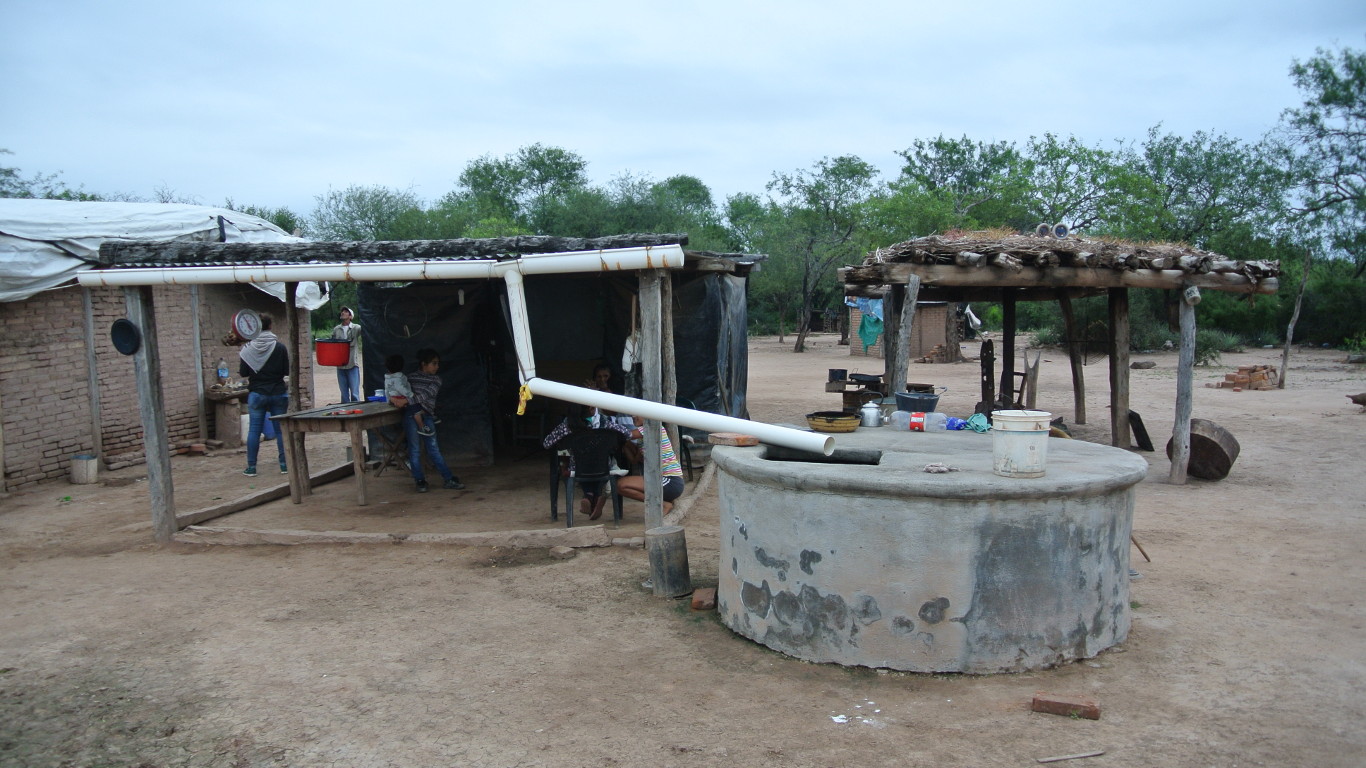The village of El Negrito is located in the northwest of the province of Santiago del Estero in Argentina in an extremely isolated location. The next large settlement is about 60 km away and can only be reached on unpaved and unmaintained roads, which are almost impassable in the rain. The approximately 50 inhabitants of El Negrito in 12 houses live largely from the production of timber from the surrounding forests and livestock farming to cover their own needs. The semi-arid climate with a pronounced dry season of about 6 months, in conjunction with the natural occurrence of arsenic and salt in the groundwater, makes water supply a critical issue for the people of El Negrito.
Today, rainwater is collected to ensure a minimum water supply. However, the existing systems are sometimes poorly designed or are in bad condition and do not have sufficient capacity to provide all humans and livestock with sufficient clean water. As a result, the inhabitants of El Negrito often run out of water after long periods of drought, and the water is often of poor quality. When there is no more water in the cisterns, the inhabitants have to travel large distances to buy drinking water, as well as driving their animals to far away waterholes.
Project Overview
IngOG+ supported its partner organisation ISF Argentina in implementing a three-phase project to overcome this situation:
Phase 1: Expansion of rainwater collection devices to provide 20 litres of clean drinking water per person per day
Phase 2: Provision of a further 30 litres of water per person per day for secondary use and daily 5,000 litres of drinking water for livestock
Phase 3: Initiatives for reduction of water consumption, for example, by establishing vegetable/cereal cultivation in place of only livestock farming
Involved Actors
- Engineers Without Borders Argentina (ISF-Ar)
- Pepperdine University
- Engineers without Borders Switzerland (IngOG+)


